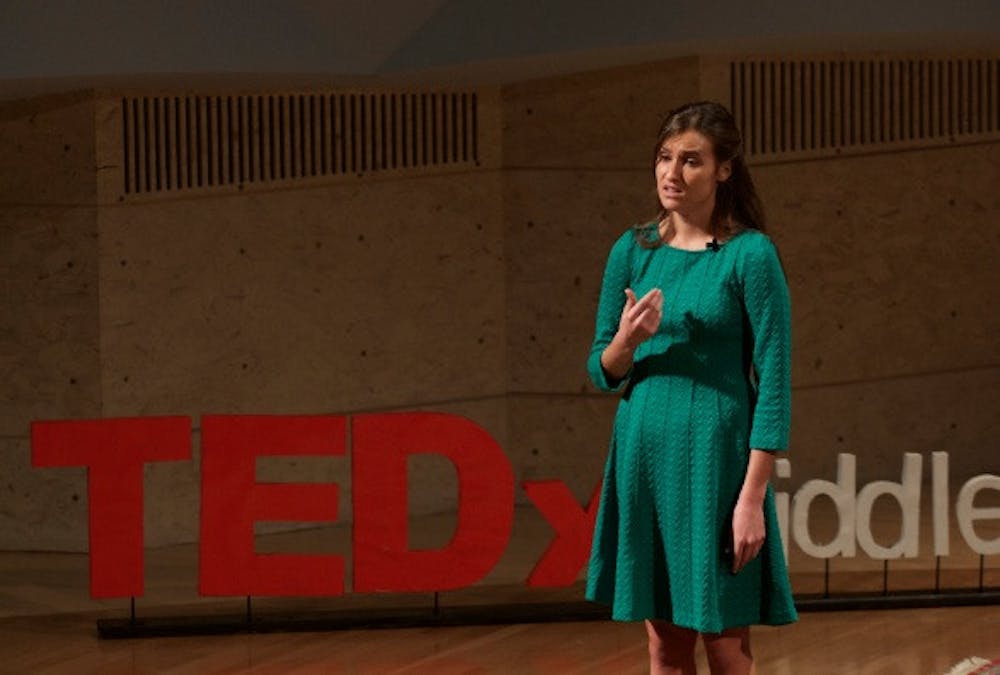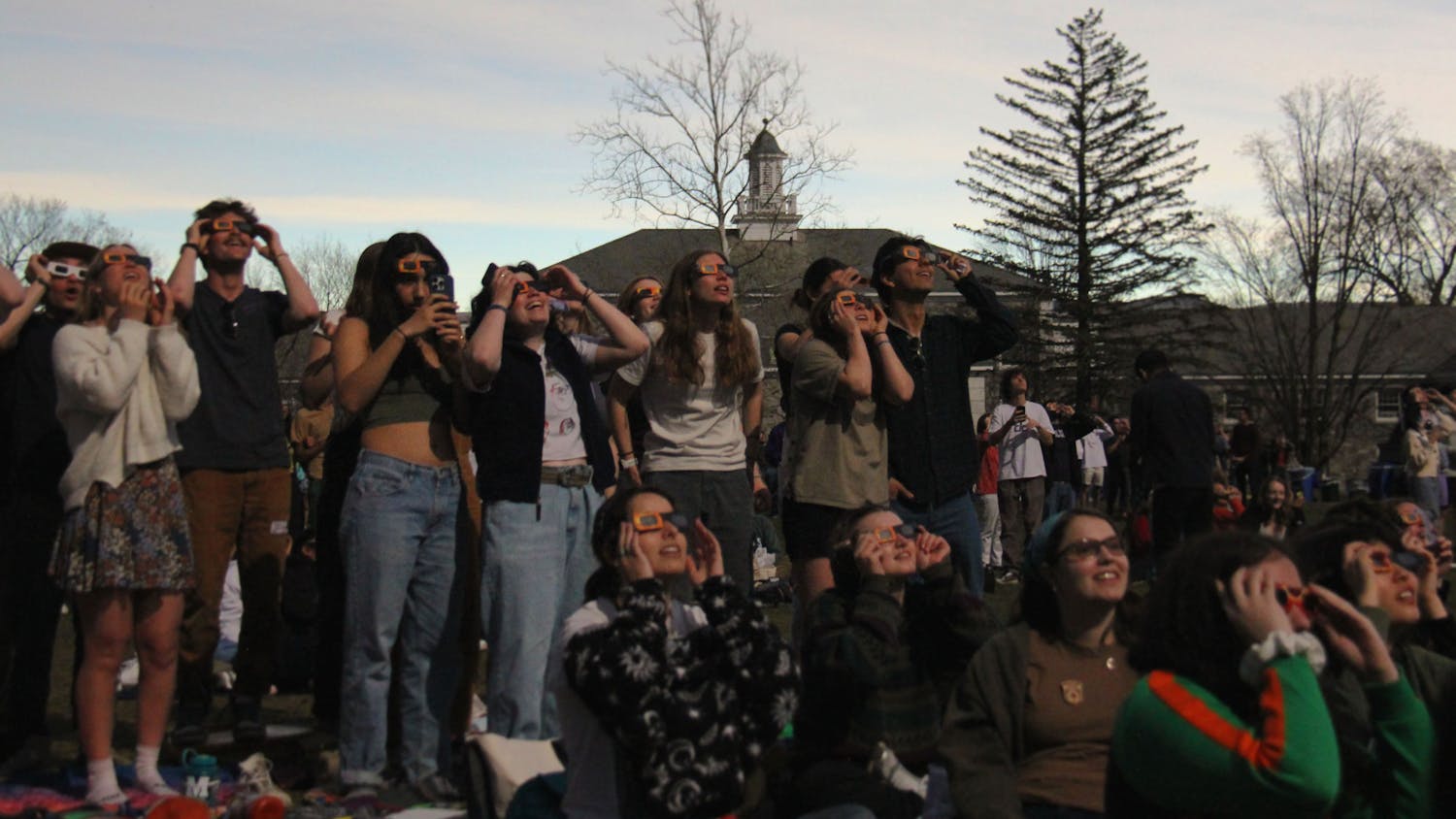On Sunday, Nov. 8 the Middlebury community gathered in the Mahaney Center for the Arts (MCA) for the sixth annual TEDx Middlebury event. Seven speakers gave speeches under this year’s theme “Caught in the Act.”
The event focused on understanding the lines created by society that people constantly endeavor to live with or rise above. The speakers and moderator urged that in creating identity in the world in which we live, there must be an awareness of one’s surroundings and an understanding of intersectionality. With a last minute cancellation by Marco Mezzavilla due to travel issues, the event featured seven speakers: The Lady B, Elizabeth Ready, Casey Wanna ’17, Wagatwe Wanjuki, Brendan O’Neill, Enrique Balcazar and Joshua Allen. In each of their 18-minute speeches, the speakers elaborated on their own interpretations of this year’s theme in conjunction with their experiences of identity. “We picked ‘Caught in the Act’ partly because it is about self-reflection, but also because it is about communal reflection,” said Jiya Pandya ’17, who was the moderator of the event and a TEDx board member.
“Middlebury as a community has been thinking a lot recently about the way we understand this space and each other and ourselves as a collective, and with President Patton’s arrival, a lot of these conversations have taken on a new light,” said Pandya.
According to Pandya, the event was meant as a continuation of existing dialogue about self-discovery within the community under the College’s new leadership. Each speak- er took a different approach to this goal.
Wagatwe Wanjuki, a self-professed Internet junkie and “crazy bunny lady,” spoke out about feminism and campus rape culture. Her online presence began with blogging during her years in prep school and continued when she enrolled in Tufts University. There, she began a campaign against rape culture after being sexually assaulted, unsupported by her university and subsequently asked to leave.
Wanjuki spoke about the waves of con- sequences associated with rape. According to her, it is not the trauma of a moment, but rather a trauma that continues to affect the survivor for years. After taking ten years to get her undergraduate degree, she accrued a debt of $124,402.78. With loans of this size, her credit tanked and access to housing and even jobs that would help her recover were inaccessible to her. She pointed to this as the literal cost of not believing survivors.
Wanjuki pointed out the flawed reasoning associated with rape: that victim- hood is a coveted state as The Washington Post columnist George Will expressed. Her reaction to this sentiment sparked her nationally trending hashtag #SurvivorPrivilege on Twitter. Wanjuki concluded her talk by beseeching audience members to believe survivors.
Another speaker, Joshua Allen, called upon fellow activists as he presented a poignant message of true liberation through a black, gender non-conforming lens. From a young age, Allen was told to “always ask
questions. Things are never as simple as they seem.” Allen continued, “It is in our failures that we find the ability to organize.”
Allen works as an abolitionist, organizing social justice movements to end imperialist ideals and bring about black liberation. They lead a campaign to end genocide against black trans and gender non-conforming femmes, women and girls in the hopes of bridging the gap between racial and gender justice.
Abolition of police and prisons is at the forefront in Allen’s work. They note that of the 25 million incarcerated in the United States, only 1 percent are murderers. Allen believes there are better ways to prevent criminal activity than the retroactive punishment of jail. Education, transformation and restoration of criminals through employment and other means, they argue, will help eradicate walls that harm society.
These speakers and the five others were meant to represent a wide range of subject matter that somehow share a core set of values of self-expression and reflection.
“The aim of TEDx ... is to bring together seemingly disparate topics and present them to our community to spark different conversations,” Pandya said. “All the speakers at the event on Sunday, even though they come in with different lenses, are passionate people who are thinking forward, stand for something important, and are making change in their communities.”
TEDx Middlebury Brings Speakers

Comments



